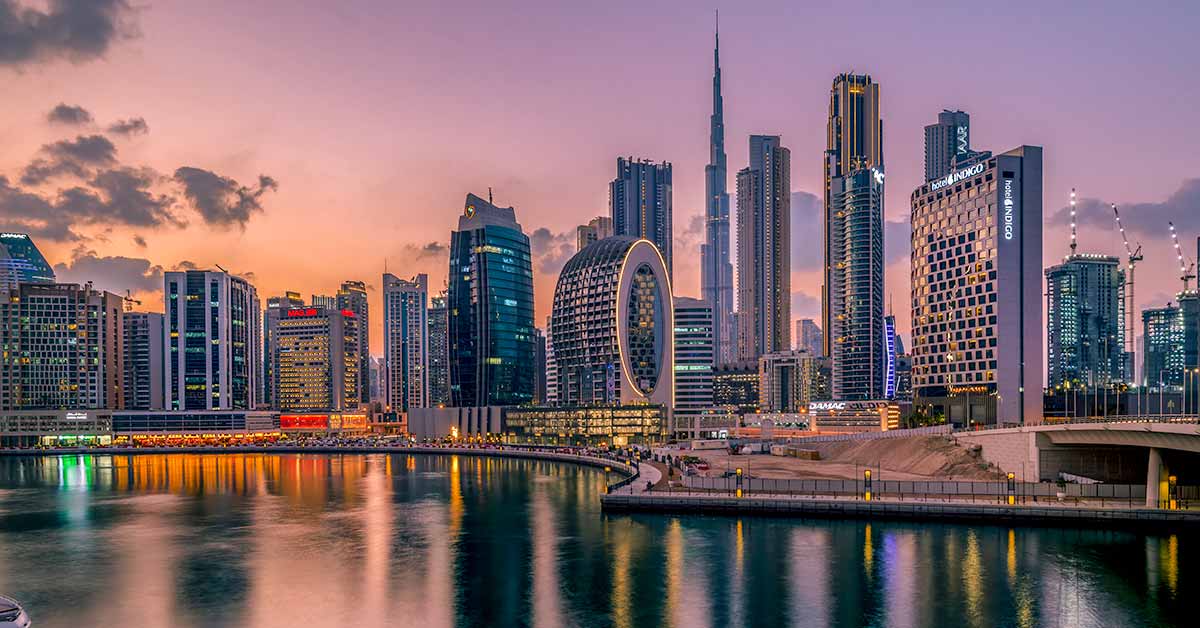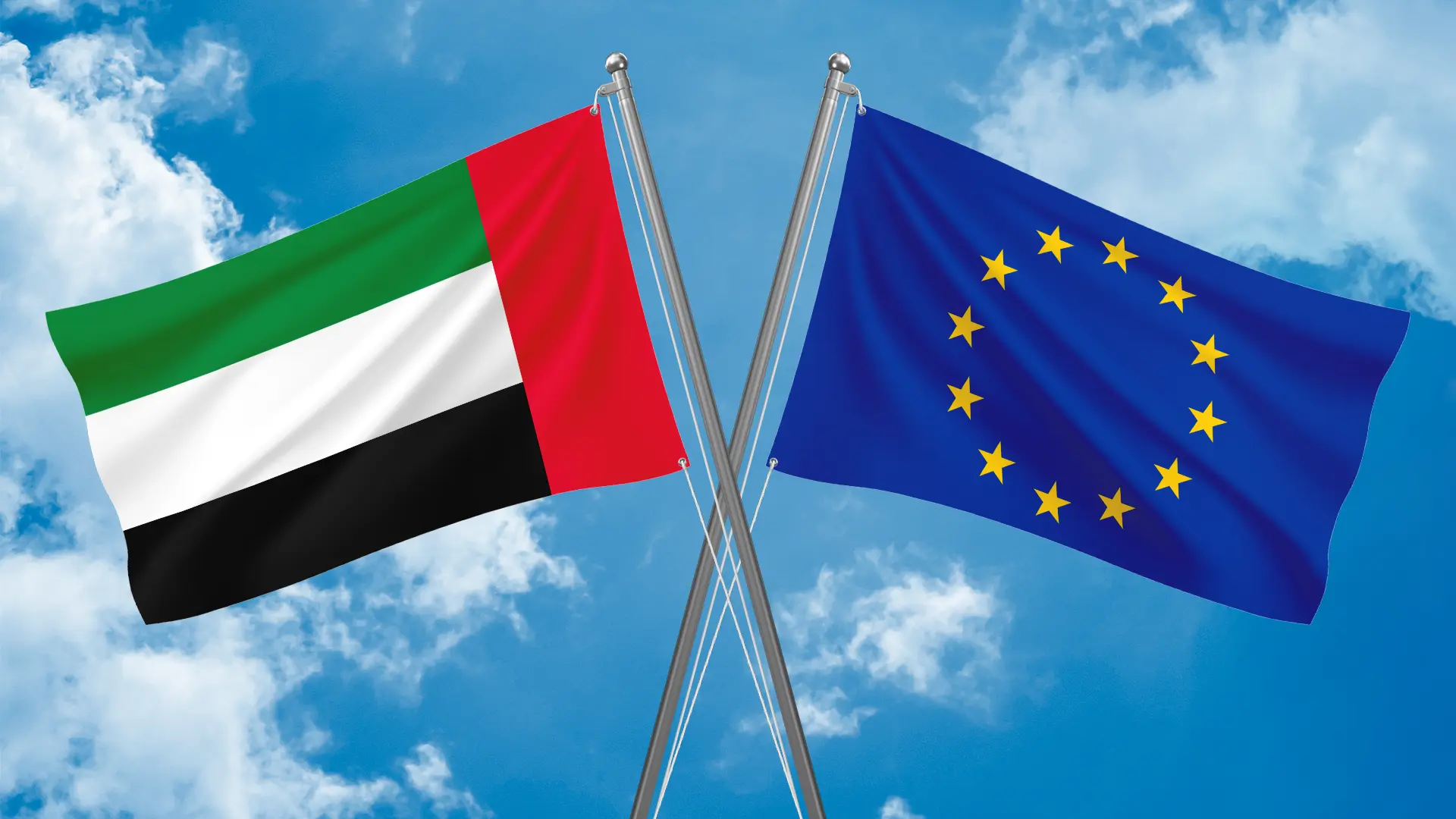Dubai Puts City Hall on the Blockchain
Dubai just rewired civic life with a single handshake. Inking a four-page pact at the Dubai FinTech Summit, the emirate’s Department of Finance (DOF) and Crypto.com flipped every parking ticket, trade-license renewal and birth-certificate fee onto a crypto rail instantly convertible, regulator-approved, and ready for a tap on your phone.


At the first glance, the deal looked ordinary enough: four crisp pages, four important signatures. Yet when Dubai’s Department of Finance shook hands with Crypto.com on the sidelines of the Dubai FinTech Summit, the pact thundered like a royal edict, engraving a QR code on every parking fine, trade-license renewal and birth-certificate request in the emirate. Once the technical plumbing is switched on, residents will be able to pull out a phone, tap “Pay with Crypto,” and send a stablecoin straight from a web-wallet to City Hall. Behind the scenes, Crypto.com will flip those tokens into dirhams in real time, sparing the government the vertigo of crypto price swings while giving on-chain natives a payment flow that feels as natural as sending a WhatsApp sticker.
Dubai’s leaders have never hidden their ambition to become the world’s most friction-free marketplace, but the memorandum of understanding signed on May 12 pushes that ambition into daily life. Abdulla Mohammed Al Basti, secretary-general of the Executive Council of Dubai, called the move a “proactive approach to anticipating future needs,” suggesting that crypto rails are no longer a laboratory project but an essential piece of civic infrastructure. Abdulrahman Saleh Al Saleh, DOF’s director general, went further, casting the partnership as a booster rocket for the Dubai Cashless Strategy, a plan that wants nine out of every ten public- and private-sector transactions to ditch physical cash by 2026.
The raw numbers underpinning that strategy dazzle even veteran technocrats. The finance department estimates that a fully digital payments ecosystem could pump at least 8 billion dirhams (about $2.1 billion) into the local economy every year by trimming paperwork, slashing settlement costs and luring more fintech entrepreneurs to the desert. Government officials say 97 percent of their own payments were already digital by the end of 2023, but crypto support expands the definition of “digital” in a way that credit cards and bank transfers never could. Stablecoins, whose price is pegged to a fiat currency will be on the whitelist at launch, a choice that keeps overnight volatility to a minimum and aligns neatly with plans for a dirham-backed coin now being scoped by Abu Dhabi investment heavyweights.
Crypto.com, licensed locally by Dubai’s Virtual Assets Regulatory Authority, is betting that its conversion engine can make crypto payments feel as routine as Apple Pay or Samsung Pay. “The Government of Dubai has been a true global visionary with its plans for a cashless society,” Eric Anziani, the exchange’s president and chief operating officer, said after the signing. The platform’s wallet will sit inside existing government portals; once a resident approves the transaction, the company’s backend liquefies the tokens and wires freshly minted dirhams to the treasury’s accounts, all in a few seconds and, crucially under the eye of regulators.
For businesses, the immediate lure is speed. A free-zone startup renewing its license or a shipping conglomerate paying port fees could settle balances with a single blockchain transfer, eliminating the SWIFT latency that still dogs cross-border wires. For ordinary citizens, the change may be felt first at the roadside: a traffic ticket paid in USDC instead of fumbling for a card reader. Critics might argue that Dubai is simply polishing its already glittering fintech credentials, but even that polish has competitive weight. Singapore and Hong Kong, the city-state’s perennial rivals, have toyed with municipal crypto pilots; neither has taken the plunge across every government service portal. If Dubai’s rollout lands without glitches, the bar for a “digital city” will quietly ratchet upward.
Skeptics will note that crypto assets, stablecoin or not rely on private issuers whose solvency is only as strong as their treasuries. Dubai’s answer is a belt-and-braces regulatory framework now under construction, one that Ahmad Ali Meftah, executive director of central accounts, says must “foster innovation while ensuring the highest standards of security and efficiency.” The framework, he argues, is what turns a flashy integration into a civil-service workhorse. For now, the stablecoin whitelist and instant conversion backstop act as circuit breakers: if a token wobbles, the Department of Finance never touches it.
Still, in my opinion, the symbolism matters. Paying a water bill with a blockchain transfer reframes crypto from speculative hobby to public utility. It also places a diplomatic marker: global finance, the emirate suggests, will be interoperable or it will be obsolete. In a region where economic diversification is a national sport, Dubai has chosen payments plumbing as its event of choice, and it is running the lap at sprint pace.
Whether the experiment rewires the habits of millions remains to be seen. Cash, though already scarce in Dubai’s air-conditioned malls, still rules in the taxi that ferries tourists from the airport. Culture, convenience and trust will decide how quickly those last dirham notes disappear from wallets. But for the first time, the city’s most prosaic civic chores whether renew a permit, settle a fine, pull a birth certificate are about to speak the same language as decentralized finance. In crypto parlance, that’s not just adoption; it’s real-world utility minted on government letterhead.
Contact us for a free consultation
Get expert advice and tailored solutions from industry leaders.



